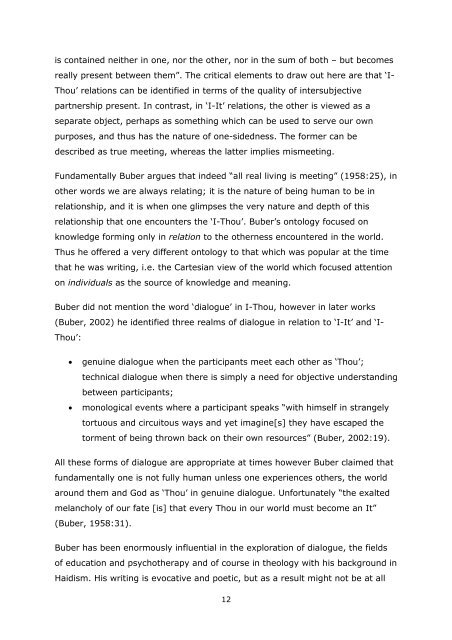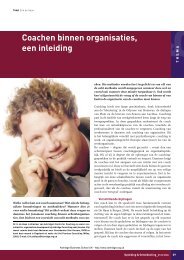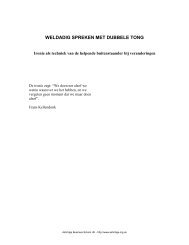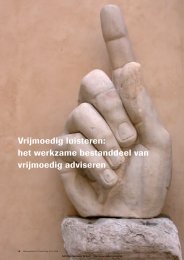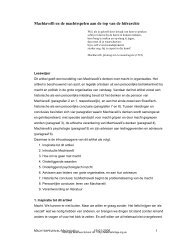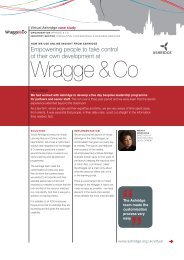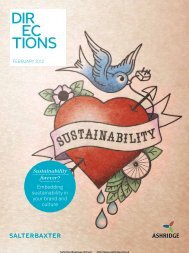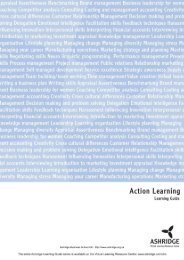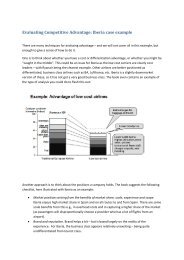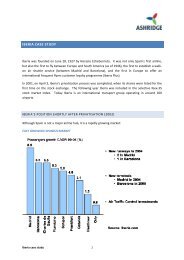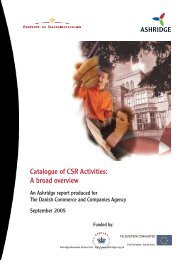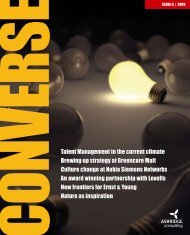“Dialogue – possible between leader and follower?” - Ashridge
“Dialogue – possible between leader and follower?” - Ashridge
“Dialogue – possible between leader and follower?” - Ashridge
Create successful ePaper yourself
Turn your PDF publications into a flip-book with our unique Google optimized e-Paper software.
is contained neither in one, nor the other, nor in the sum of both <strong>–</strong> but becomes<br />
really present <strong>between</strong> them<strong>”</strong>. The critical elements to draw out here are that ‘I-<br />
Thou’ relations can be identified in terms of the quality of intersubjective<br />
partnership present. In contrast, in ‘I-It’ relations, the other is viewed as a<br />
separate object, perhaps as something which can be used to serve our own<br />
purposes, <strong>and</strong> thus has the nature of one-sidedness. The former can be<br />
described as true meeting, whereas the latter implies mismeeting.<br />
Fundamentally Buber argues that indeed “all real living is meeting<strong>”</strong> (1958:25), in<br />
other words we are always relating; it is the nature of being human to be in<br />
relationship, <strong>and</strong> it is when one glimpses the very nature <strong>and</strong> depth of this<br />
relationship that one encounters the ‘I-Thou’. Buber’s ontology focused on<br />
knowledge forming only in relation to the otherness encountered in the world.<br />
Thus he offered a very different ontology to that which was popular at the time<br />
that he was writing, i.e. the Cartesian view of the world which focused attention<br />
on individuals as the source of knowledge <strong>and</strong> meaning.<br />
Buber did not mention the word ‘dialogue’ in I-Thou, however in later works<br />
(Buber, 2002) he identified three realms of dialogue in relation to ‘I-It’ <strong>and</strong> ‘I-<br />
Thou’:<br />
• genuine dialogue when the participants meet each other as ‘Thou’;<br />
technical dialogue when there is simply a need for objective underst<strong>and</strong>ing<br />
<strong>between</strong> participants;<br />
• monological events where a participant speaks “with himself in strangely<br />
tortuous <strong>and</strong> circuitous ways <strong>and</strong> yet imagine[s] they have escaped the<br />
torment of being thrown back on their own resources<strong>”</strong> (Buber, 2002:19).<br />
All these forms of dialogue are appropriate at times however Buber claimed that<br />
fundamentally one is not fully human unless one experiences others, the world<br />
around them <strong>and</strong> God as ‘Thou’ in genuine dialogue. Unfortunately “the exalted<br />
melancholy of our fate [is] that every Thou in our world must become an It<strong>”</strong><br />
(Buber, 1958:31).<br />
Buber has been enormously influential in the exploration of dialogue, the fields<br />
of education <strong>and</strong> psychotherapy <strong>and</strong> of course in theology with his background in<br />
Haidism. His writing is evocative <strong>and</strong> poetic, but as a result might not be at all<br />
12


